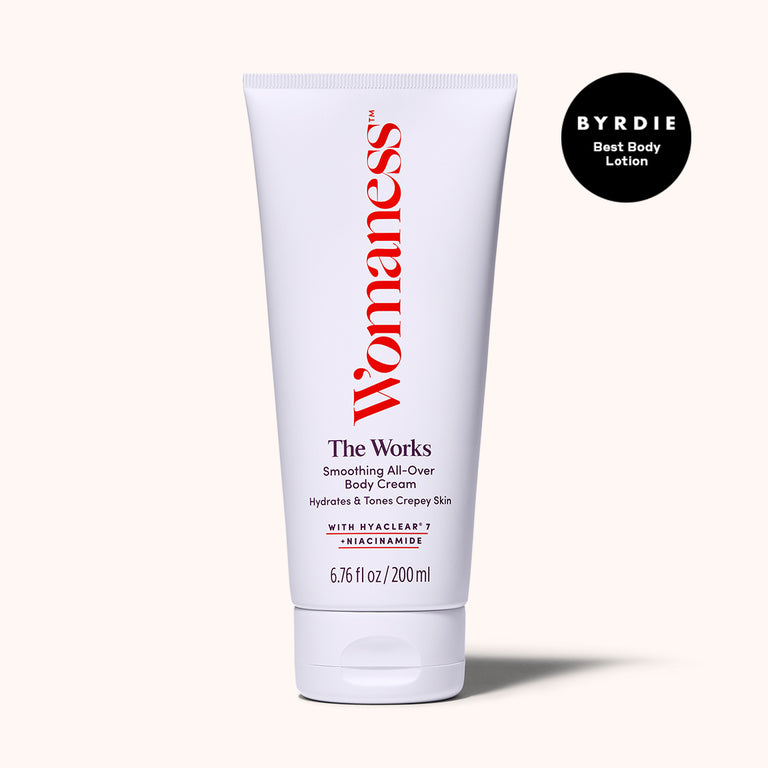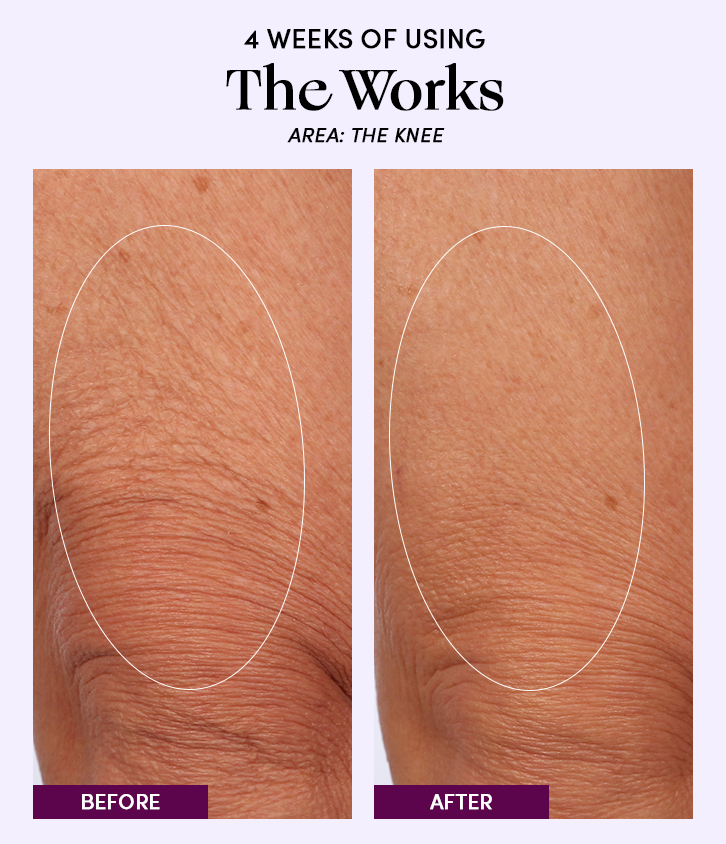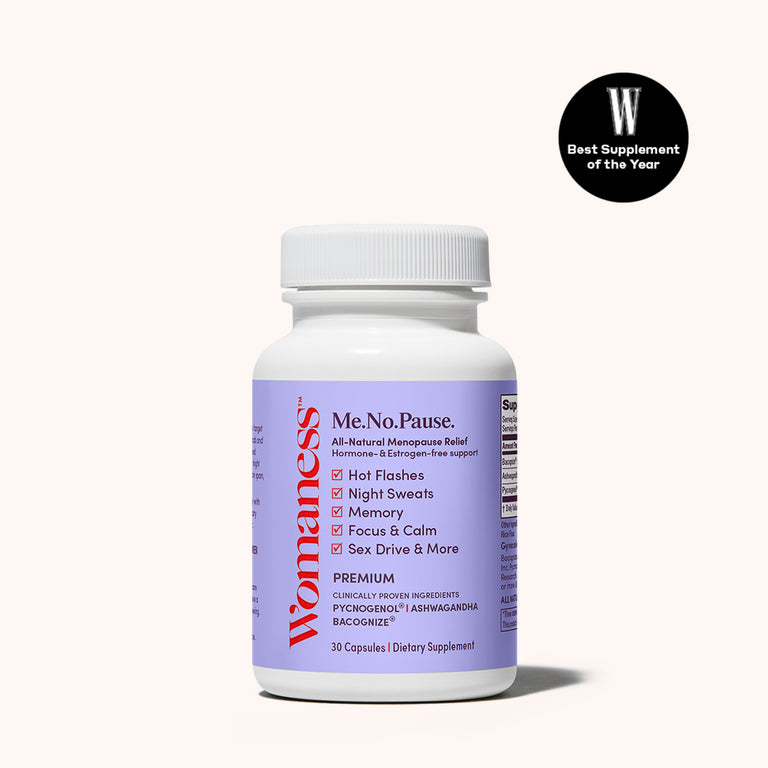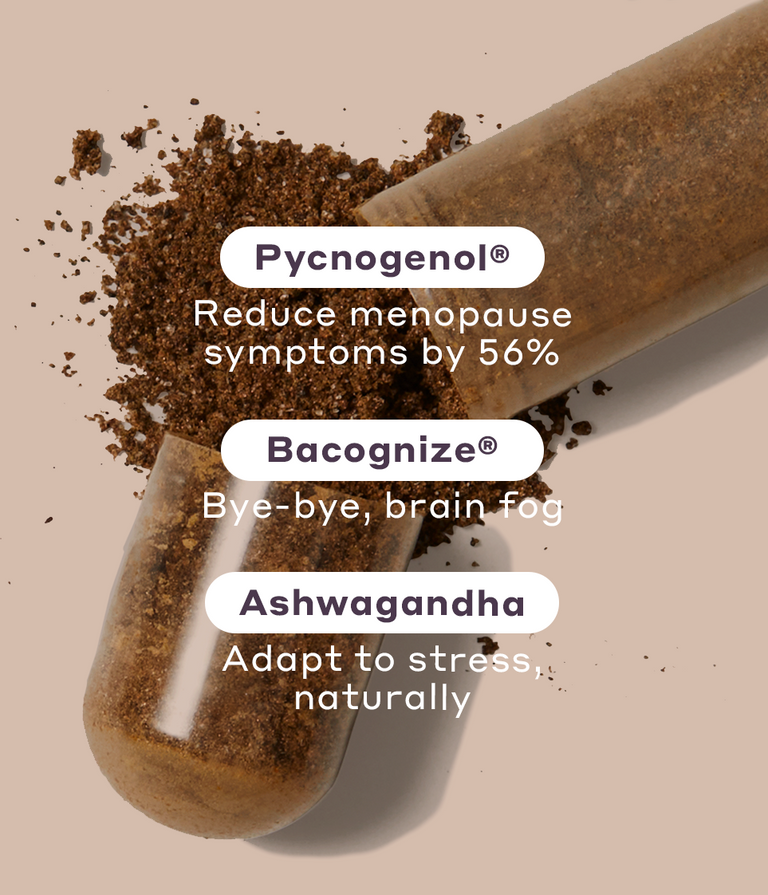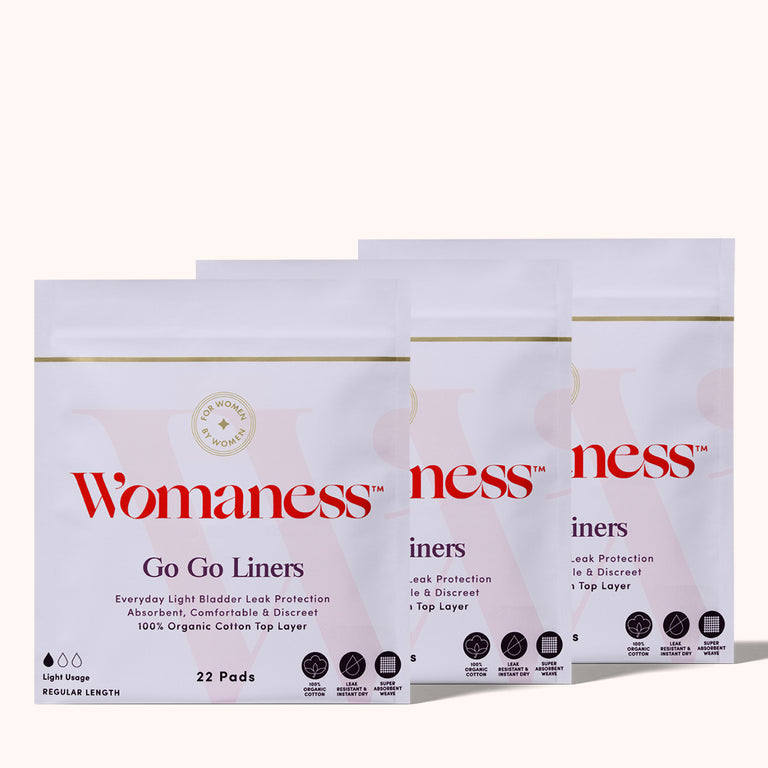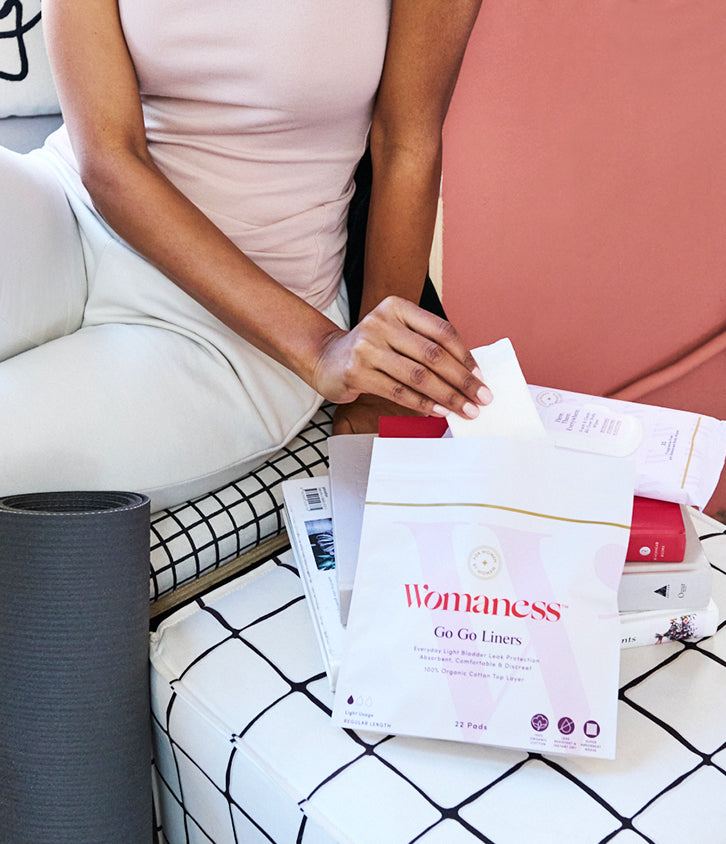By Ann Marie McQueen
Ann Marie McQueen is a Canadian journalist and founder of hotflash inc., a global digital menopause magazine that covers the latest research, public policy, tech, business, podcasts, products, movers and shakers, and more.
Shortly after I launched Hotflash Inc in 2020, I wrote this tweet: “One day I want to be able to say the word menopause, anywhere I feel like, anytime it works, without anyone getting weird.”
This month is World Menopause Awareness Month 2021, and we are far closer to that vision than I would have been able to foresee. The whole year has been a tipping point, really. But even if more of us are able to say menopause without feeling weird about it, we are probably more confused than ever regarding what to do about it.
Admitting It Exists Is the First Step
The United States’ $600 billion menopause market (so pegged by the Female Founders Fund) is full steam ahead after a summer full of business deals. In the US, the Oprah Winfrey-invested Maven Clinic, Peppy, and Elektra Health all raised significant funds for their growth efforts, while over in the UK, Vira Health was doing the same. Meanwhile, menopause startups are offering a variety of solutions in emerging pockets around the globe. There’s Singapore’s Elocare, developing wearables; India’s &Me with its phytoestrogen formula menopause cookies; Canada’s Eastra Health, working on a psychedelic revolution, and here in the US, there’s Seattle’s Joylux, using red light therapy to rejuvenate vaginas. And then, there is skincare, with new entries on a monthly basis, from the M&S x Prai Menoglow collaboration, to Australian actress Naomi Watts partnering with Amyris, to the launch of Womaness in the U.S.
The global leader on menopause awareness and policy is inarguably the UK, and it’s got the #menopauserevolution hashtag to prove it. Years of tireless lobbying and activism by regular folks have brought the topic all the way to the British Parliament, where regulators are considering a national menopause policy.
Britain’s own “Menopause Doctor” Louise Newson solidified her spot as the country’s go-to expert, launching a free app and what appears to be another world first, The Menopause Charity. British firms are leading the way in creating workplace policies, human resources experts are warning that in the face of rising litigation, companies need to get out in front of the issue, menopause clinics are opening across Ireland and there is a move afoot to have mandatory training in medical school—as if it shouldn't have been there all along.
Speaking Up (And Out)
Menopause is also front and center on television and radio chat shows, and covered regularly by the world’s foremost newspapers and magazines. The Channel 4 documentary Sex, Myths and Menopause with Davina McCall, which screened in the spring, proved to be a game-changer.
Years of tireless lobbying and activism by regular folks have brought the topic all the way to the British Parliament, where regulators are considering a national menopause policy.
Sophie, Countess of Wessex, became the first member of the royal family to speak openly about her brain fog and other symptoms. And menopause continues to generate its own brand of British celebrity, making it almost chic to address. Over 40 and being interviewed? It’s always on the table. As one recognizable face, British GP Dr. Nighat Arif told Huffington Post UK: “Menopause has become like the new black, because everybody is jumping on the bandwagon.”
In Holland, a pair of authors gifted 49-year-old Queen Maxima with a copy of their menopause book, Transition from Head to Toe. And when 54-year-old Martina Bonnier took over as the new editor of Vogue Scandinavia, she not only gave interviews saying it was high time the magazine recognized older women, but talked about menopause too.
It was just early 2020 when The Hollywood Reporter published a piece called Hollywood’s Menopause Problem, arguing that silence onscreen perpetuates stigma in the culture at large.
But 2021 brought a palpable shift. There was Rosie Perez’s woefully disoriented character in The Flight Attendant (and Perez stepping up to talk about menopause in a New York Times interview); Melissa McCarthy’s off-kilter menopausing romance author Frances in Nine Perfect Strangers, and over on Hacks, actress Jean Smart wrote this line herself: “It’s basically Mother Nature’s way of telling you to move to the back of the cave.” In film, Salma Hayak made sure her character was struggling with menopause in Hitman’s Wife's Bodyguard just like she is in real life, at 54. And in November on Netflix, audiences will see Halle Berry portray a menopausal, making-a-comeback boxer in Bruised—a film she directed, too.
(Television writers were also busting taboos overseas: in India, with a beleaguered bank CEO struggling with hot flashes and more on Netflix’s Bombay Begums; and in Israel, with novelist and screenwriter Yael Hedaya’s eight-part series Fifty which tells the story of a widowed single mom of three navigating perimenopause at 49.)
Bold celebrities in the US have been raising awareness by sharing their personal stories like never before, led by Taraji P Henson, Gwyneth Paltrow, Gabrielle Union, Hayak and her pal Jada Pinkett Smith on Red Table Talk. The Today Show is doing regular segments, mainstream newspapers are upping their game, albeit slowly, and in the September issue, Health magazine devoted a number of articles to the topic. Dr. Jen Gunter, aka North America’s menopause doctor, drove much of the press coverage with the release of her book The Menopause Manifesto, and extensive publicity tour.
Media Takes Notice
It’s hard to believe it was just 2019 when writer Sarah Manguso asked in The New Yorker: “Where Are All the Books About Menopause?” There were literally dozens of releases this year, many of them expert-penned menopause guides, and now it looks like the menopause novel is become a thing, too: Dana Spiotta’s Wayward led the charge, getting reviews from all the majors; up next is the first adult novel from Kristen Miller, a thriller dubbed The Change, and Irish author Ciara Geraghty, due out with a new book about a woman hitting midlife and reassessing everything.
And then there is advertising, which can’t be ignored in a brand-centered world. In the US there was Invexxy’s game-changing fairy godmother/princess advert, which—while irritating some with its pink-drenched princess theme—subverted the aging, invisible menopausal woman trope. In the UK, the incontinence company Tena Woman featured an inclusive range of women, all 55+, in various stages of undress and talking about how much they still love sex. The tagline was everything: “Too much? Well, it’s not about you. It’s about me.” Tena’s groundbreaking campaign in the Middle East literally changed the Arabic word for menopause to the “age of renewal” from “age of despair.”
The menopause conversation in the U.S. got more inclusive with the publishing of non-binary American author Heather Corinna’s What Fresh Hell is This?
The menopause conversation in the U.S. got more inclusive with the publishing of non-binary American author Heather Corinna’s What Fresh Hell is This? and the continued work of Omisade Burney-Scott and her Black Girls’ Guide to Menopause platform. Over in the UK, things inched forward too, with the work of Tania Glyde, aka on Instagram as @queermenopause, and the recent formation of the Menopause Inclusion Collective. The dearth of research began to right itself, slowly, as more findings came out of the Study of Women’s Health Across the Nation (an initiative co-sponsored by the National Institutes of Health), which has been collecting data from more than 3,000 multiethnic women at seven centers across the US since the late 1990s.
Prioritizing Science
Science-wise, there is much to report, and no way to cover it all. There are two new, non-hormonal drug therapies in the pipeline; and more studies showing that migraines are linked to worsened menopause symptoms. Scientists are mapping the vaginal microbiome, which should lead to breakthroughs for women suffering from genitourinary syndrome of menopause; while a small study showed that fractional C02 laser therapy—an increasingly available non-hormone treatment for GSM that remodels vulvar and vaginal tissues—helped improve sexual function in postmenopausal women with breast cancer. There has also been convincing research to suggest that a low-fat, plant-based diet complete with a half-cup of daily soybeans can reduce hot flashes by 84 percent.
Scientists like Dr. Lisa Mosconi in the US and Dr. Sarah McKay in Australia are hard at work trying to understand the female brain and its greater propensity for dementia, which is worry number one for those of us struggling with brain fog. They are studying menopause right down to women’s smallest elements, aka the metabolome. And finally, a long-term study again indicated that dairy consumption didn’t have very much to do with bone health across the menopause transition.
Canada was the location of the latest research into cannabis use and menopause, which was presented at the 2021 North American Menopause Society Annual Meeting in September. One in three women are using it, with relief from symptoms 75 percent of the time. This year we also found out killer whales and giraffes go through menopause, and it can’t be long before researchers turn their attention to other long-living animals.
While the West is focused on hormone and drug-related therapies, some of the more interesting plant-based research comes from outside of North America: In Australia, researchers found saffron extract can improve psychological symptoms; a small study out of South Korea published in the journal Nutrients provided evidence that a combination of kudzu flower-mandarin peel extract lowered hot flash frequency and severity, while reducing bone reabsorption and increasing bone formation. In Iran, researchers found that supplementation with Jazar—a phytoestrogenic combination of fennel, Vitex (chasteberry) and carrot seeds—decreased postmenopausal symptoms and improved all areas of sexual function and vaginal atrophy in participants.
In Sri Lanka, a research project found most women are managing menopause on their own—and viewing it as a natural stage of aging. Participants in the study spoke about being part of a collectivist culture where family is everything, cited home remedies—like adding wild asparagus, gotu kola, curry leaves and garlic to dishes—and noted the importance of Buddhist nightly chanting, or pirith, and meditation, for overall sleep and well-being. In Malaysia, an interview-based study on menopause reveals women living in Borneo are just as befuddled about this transition as the rest of us. (Take their opinions on HRT: 21.9 percent thought menopause should be treated “medically”; 32.3 percent argued for “natural” approaches.)
In November last year Australia became the first country in the world to officially approve testosterone—under the name AndroFeme—for use in treating female sexual dysfunction. As for the rest of the world? Testosterone treatment is still largely patchy, off-label, and unfunded.
The European Society of Cardiology (ESC) produced a wide-ranging consensus document that is a must-read for all of us, and the most important take-away was that we need to take responsibility for our own heart health and history, because the medical community will not.
Most of the official direction on HRT from North America and the UK continues to emphasize safety and downplay risks, indicating that while menopause hormone therapy does increase the risk of breast cancer along with blood clots and strokes, those risks are low. There was a lot of coverage of the safer “HRT window,” which is as soon as possible after menopause, or at least within 10 years.
And we are hearing more and more that hormone therapy can provide protection for the “big three” menopause-related concerns: heart disease, osteoporosis and Alzheimer’s disease and dementia. Research also shows that a good diet and exercise—including strength training—does that too.
There’s been a growing awareness that trauma, in the form of a range of Adverse Childhood Experiences, could be driving worsened menopause symptoms. This is coupled with recognition that midlife is a time when we are forced to reckon with everything, and these areas are the focus for people like the British “Menopause Psychologist” Becky Quicke.
Meanwhile, there are calls to pay better attention to how we speak about this transition. It’s still a natural one, albeit possibly worsened due to an evolutionary mismatch with our stressful, toxic environments. As American endocrinologist Dr Jerilynn Prior argued in Scientific American earlier this year, menopause is supposed to happen, and although it’s increasingly used, it’s important to remember “estrogen deficiency” is a marketing term.
Ultimately the menopause conversation in 2021 is like so many others in our polarized world: A lot of people who seem to know what they are saying, tons of conflicting information, and agendas everywhere. So: who do we believe? What do we do?
No one is figuring that out for us and the truth is, they likely never will. There aren’t really any gurus in this world—not even in lab coats. Because when you dive right into it, they can’t agree on most things either—just like those 4 out of 5 dentists in the toothpaste ads we grew up with.
What we do have is the peri/menopausal woman’s secret weapon: an untold wealth of experience and wisdom. And just like we figured out everything else lift has thrown at us, we will figure this out too.
Don’t forget to talk to those sisters who have walked the path already, to ask about the freedom waiting for us on the other side. Most of them will tell you this is going somewhere good. We just need to hang on and figure out what to do in the meantime to make it there.
Disclaimer
This article is intended for informational purposes and is not intended to replace a one-on-one relationship with a physician or medical advice. Womaness strives to share the knowledge and advice from our own network of experts and our own research. We encourage you to make healthcare decisions based in partnership with a qualified healthcare professional.
More Essays & Interviews
Womaness Woman: Melanie Griffith
Fitter, Stronger, Happier
Womaness Woman: Susan Feldman


